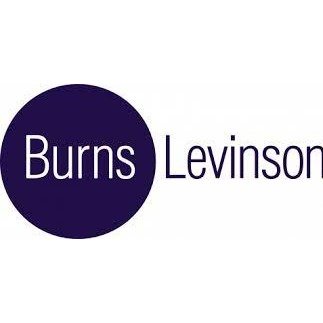Best Nonprofit & Charitable Organizations Lawyers in Boston
Share your needs with us, get contacted by law firms.
Free. Takes 2 min.
List of the best lawyers in Boston, United States
About Nonprofit & Charitable Organizations Law in Boston, United States
Nonprofit and charitable organizations in Boston play a vital role in addressing social, cultural, educational, and environmental needs in the community. Nonprofit law encompasses all legal issues related to the creation, operation, and dissolution of nonprofit entities. In Boston, these organizations range from small local charities to large international nonprofits, and they must comply with both federal and state laws. The regulatory framework ensures that nonprofits operate transparently and effectively to fulfill their missions while benefiting from tax-exempt status.
Why You May Need a Lawyer
There are several scenarios in which you might require legal assistance for a nonprofit or charitable organization in Boston. These may include:
- Formation: If you are starting a new nonprofit, you will need help navigating the incorporation process, drafting bylaws, and applying for tax-exempt status.
- Compliance: Ensuring ongoing compliance with federal and state regulations can be complex, especially regarding charitable registrations, employment law, and reporting obligations.
- Contracts: Nonprofits often enter into various contracts and agreements, such as leases, service contracts, and funding agreements that require legal scrutiny.
- Board Governance: Legal advice may be necessary to address issues related to board responsibilities, conflict of interest policies, or governance disputes.
- Tax Issues: Nonprofits must handle tax filings and may require assistance with issues related to maintaining tax-exempt status or unrelated business income.
- Dissolution or Mergers: Legal guidance is important when restructuring, merging with another entity, or dissolving the organization.
Local Laws Overview
Nonprofit organizations in Boston must adhere to a variety of local, state, and federal laws. Some of the key legal considerations include:
- Incorporation: Organizations must register with the Massachusetts Secretary of the Commonwealth and follow state-specific incorporation requirements.
- Charitable Solicitation: Obtaining a Certificate for Solicitation from the Attorney General's Non-Profit Organizations/Public Charities Division is necessary for fundraising activities.
- Tax-Exempt Status: Most nonprofits seek federal 501(c)(3) tax-exempt status and are required to comply with the regulations set by the IRS.
- State Reporting: Annual filing of reports and financial disclosures with the Commonwealth is mandatory to maintain good standing.
- Employment Law: Nonprofits must adhere to Massachusetts labor laws, which might include paying minimum wage, adhering to anti-discrimination policies, and offering employee benefits.
Frequently Asked Questions
What are the first steps to start a nonprofit in Boston?
Start by defining your mission and structure, then follow with incorporation, drafting bylaws, and filing for tax-exempt status with the IRS and Massachusetts authorities.
How do I maintain my nonprofit's tax-exempt status?
Ensure compliance with both state and federal reporting requirements, avoid engaging in substantial unrelated business activities, and adhere to all operational guidelines.
Can a nonprofit in Boston pay its staff?
Yes, nonprofits can compensate their staff. However, compensation must be reasonable and in line with similar positions in the market to avoid jeopardizing tax-exempt status.
What is required for board governance in a nonprofit?
Nonprofit boards must regularly meet, maintain records of meetings, ensure the financial oversight of the organization, and adhere to bylaws and conflict of interest policies.
Do nonprofits have to file tax returns?
Generally, nonprofits must file a Form 990 with the IRS and a similar financial disclosure with the state each year, detailing their financials and activities.
What types of fundraising are legal in Boston?
Most types of fundraising are permissible with the correct registration. This includes events, online campaigns, and direct solicitation, subject to Massachusetts laws on charitable solicitation.
Can a for-profit organization be converted into a nonprofit?
While it's challenging, a conversion is possible through asset transfer or other restructuring. Legal guidance is essential in this complex process.
How can a nonprofit legally accept donations?
Once registered as a charitable organization, nonprofits can accept donations but must comply with federal and state guidelines on fundraising and receipt issuance.
What is the process for merging two nonprofit organizations?
A nonprofit merger involves legal, financial, and operational steps, such as board approval, due diligence, and filings with state authorities.
What legal protections are available for nonprofit volunteers?
Massachusetts provides certain liability protections for volunteers, especially when acting within the scope of their volunteer duties, but exceptions do apply.
Additional Resources
For more information and assistance, consider these resources:
- Massachusetts Attorney General's Non-Profit Organizations/Public Charities Division
- IRS Tax Information for Charitable Organizations
- Greater Boston Legal Services for Nonprofits
- Massachusetts Nonprofit Network for advocacy, training, and resource-sharing
Next Steps
If you need legal assistance for a nonprofit or charitable organization in Boston, start by consulting with an attorney who specializes in nonprofit law. You can also reach out to local legal aid societies or bar associations for referrals. Before meeting with a lawyer, gather all relevant documents and understand your goals and concerns to ensure a productive consultation. Start by clearly identifying your legal issues, whether related to formation, governance, compliance, or other areas, to streamline the process with your legal advisor.
Lawzana helps you find the best lawyers and law firms in Boston through a curated and pre-screened list of qualified legal professionals. Our platform offers rankings and detailed profiles of attorneys and law firms, allowing you to compare based on practice areas, including Nonprofit & Charitable Organizations, experience, and client feedback.
Each profile includes a description of the firm's areas of practice, client reviews, team members and partners, year of establishment, spoken languages, office locations, contact information, social media presence, and any published articles or resources. Most firms on our platform speak English and are experienced in both local and international legal matters.
Get a quote from top-rated law firms in Boston, United States — quickly, securely, and without unnecessary hassle.
Disclaimer:
The information provided on this page is for general informational purposes only and does not constitute legal advice. While we strive to ensure the accuracy and relevance of the content, legal information may change over time, and interpretations of the law can vary. You should always consult with a qualified legal professional for advice specific to your situation.
We disclaim all liability for actions taken or not taken based on the content of this page. If you believe any information is incorrect or outdated, please contact us, and we will review and update it where appropriate.

















